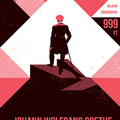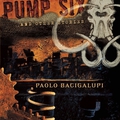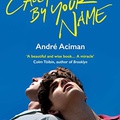Monica Ali: In the Kitchen
 I love good first paragraphs. Based on what I knew about this novel beforehand, I assumed that I would probably like it, but when I got around to actually reading it, the first paragraph convinced me that this was going to be a good book. Here it is:
I love good first paragraphs. Based on what I knew about this novel beforehand, I assumed that I would probably like it, but when I got around to actually reading it, the first paragraph convinced me that this was going to be a good book. Here it is:
When he looked back, he felt that the death of the Ukrainian was the point at which things began to fall apart. He could not say that it was the cause, could not say, even, that it was a cause, because the events which followed seemed to be both inevitable and entirely random, and although he could piece together a narrative sequence and take a kind of comfort in that, he had changed sufficiently by then to realize that it was only a story he could tell, and that stories were not, on the whole, to be trusted. Nevertheless, he fixed the beginning at the day of the Ukrainian's death, when it was the following day on which, if a life can be said to have a turning point, his own began to spin.
I didn’t include such a long quote because I have nothing to say about the book and I want to use up some space, or just because I feel some companionship with Monica Ali and her rambling, exceedingly long sentences (although I do feel this), but because for me, this paragraph is an example of the perfect way to start a novel. Sure, there’s death in it, and mystery, and tension, but what is more and what amazes me is the fact that there’s a whole lot of suspense and doubt in it, peppered with some irony: I’m at the beginning of a story, I’m curious about what’s going to happen, I want to lay my doubts aside (or suspend my disbelief) and then right in the first paragraph I’m warned that stories are not to be trusted. And a rich and philosophical paragraph like this – which implies a lot and keeps even more in the dark – creates the perfect start for a good novel.
In the Kitchen is about Gabriel Lightfood, a 42-year-old chef. Gabriel is the head cook of the restaurant at Imperial, a renowned London hotel. The kitchen of the restaurant is a truly multicultural mix: refugees from all around the world, legal and illegal immigrants and an occasional English citizen all work under the supervision of Gabe, and even though the tension arising from the cultural and other differences is sometimes almost unbearable, things are, basically, going fine. Gabriel considers himself a success, and he plans to open up his own restaurant in the near future, then marry his girlfriend, then start a family. This nice life-plan is, however, disrupted by the death of one of the hotel’s employees, a Ukrainian man, Yuri. Even though it seems that his death was caused by an accident and there’s nothing mysterious in it, Gabriel, for some reason, cannot get it out of his head, and he gets more entangled in the case (which doesn’t really exist anyway) when he meets and starts up a strange relationship with Lena, a prostitute who used Yuri’s room as a hide-out when she ran away from her pimp.
In the course of this relationship, Gabriel has to face an irrational and brutal reality, a reality he casually ignored so far, being much too occupied with the compilation of nice to-do lists and with his attempts to live according to the items on his lists and always keep himself and his life organized and well-planned. But as Gabriel learns the life-stories of Lena, Yuri and the other people working the kitchen (or the life-stories so abridged and bawdlerized as to suit the ears of a Western person), he has to review some of his earlier assumptions about the basic rights of man (such as the right to control your own life) and he has to realize that some rights he always considered inalienable are in fact not natural for a lot of people to have. Facing these thoughts and doubts, Gabriel slowly loses his inner balance, since from the minute he starts to entertain doubts about his control over his own life, he really starts to lose this (albeit illusory) control.
Monica Ali depicts Gabriel’s mental breakdown in a convincing and bewildering fashion: the disintegration happens gradually and you cannot pinpoint the event when Gabriel loses his footing. Of course, the fact that he faces the so far hidden reality of others and, parallel to this, he faces his own selfish, comfortable and insensitive soul carries the possibility of redemption, of living a better, more human life. And actually I think the depiction of this hope is the only weak point in the novel: contrasted to the things going on in the first 500 pages, the last 50 pages seem somewhat forced, unbelievable and a bit too optimistic. (But perhaps this is not a problem – since we are not to trust stories anyway.)
Despite the somewhat laboured ending, however, this is a very good novel. It tells a proper story; its protagonist is a fully believable and human character; besides, it features a lot of valid social commentary; it’s humorous; and there are intriguing and sensible thoughts and questions in it – with the answers not provided in advance.
By the way, In the Kitchen reminds me of some other novels, for one reason or the other, namely: Money by Martin Amis, The Society of Others by William Nicholson, and Problemski Hotel by Dimitri Verhulst. I won’t go into details concerning these novels, but you may check the hyperlinks pointing to my relevant posts to see the connections.





